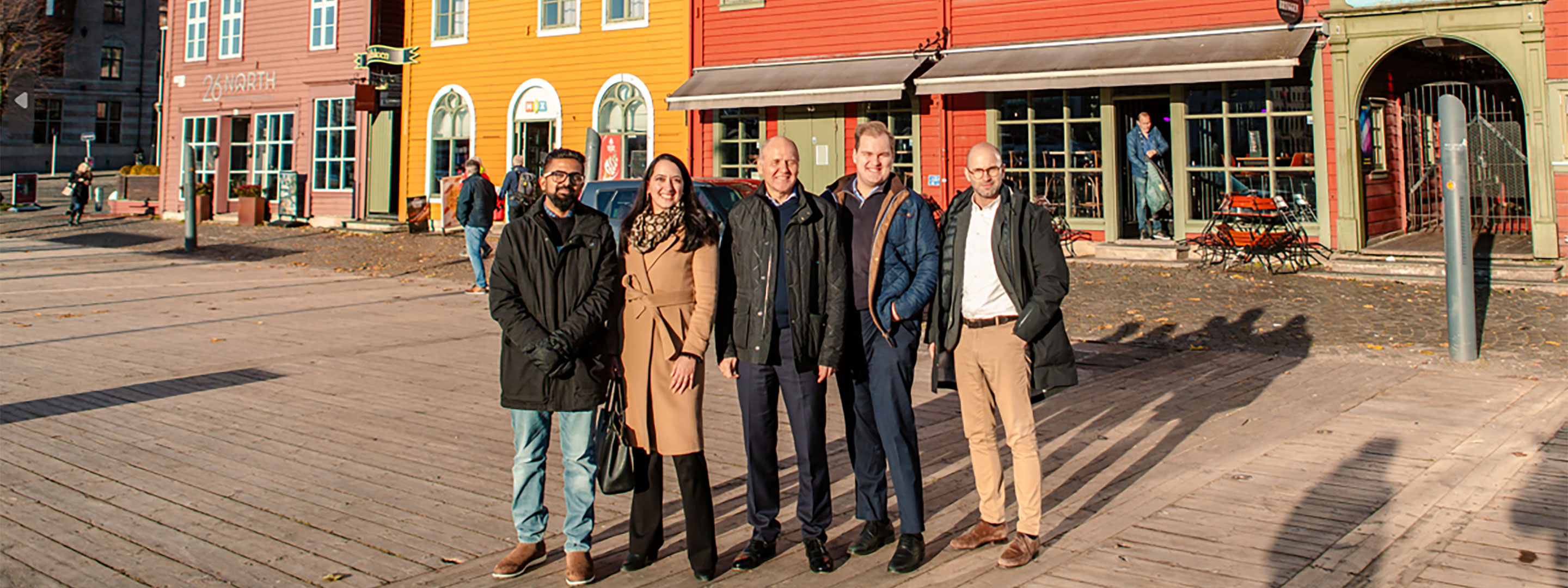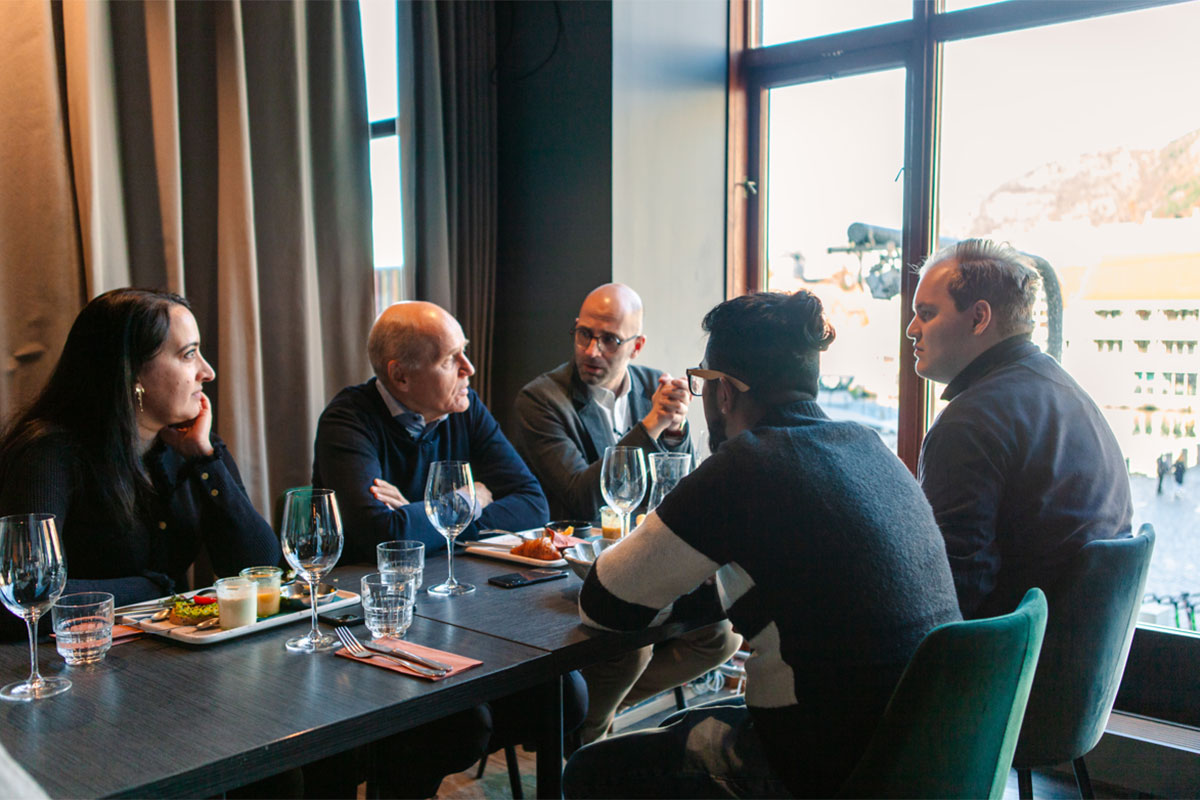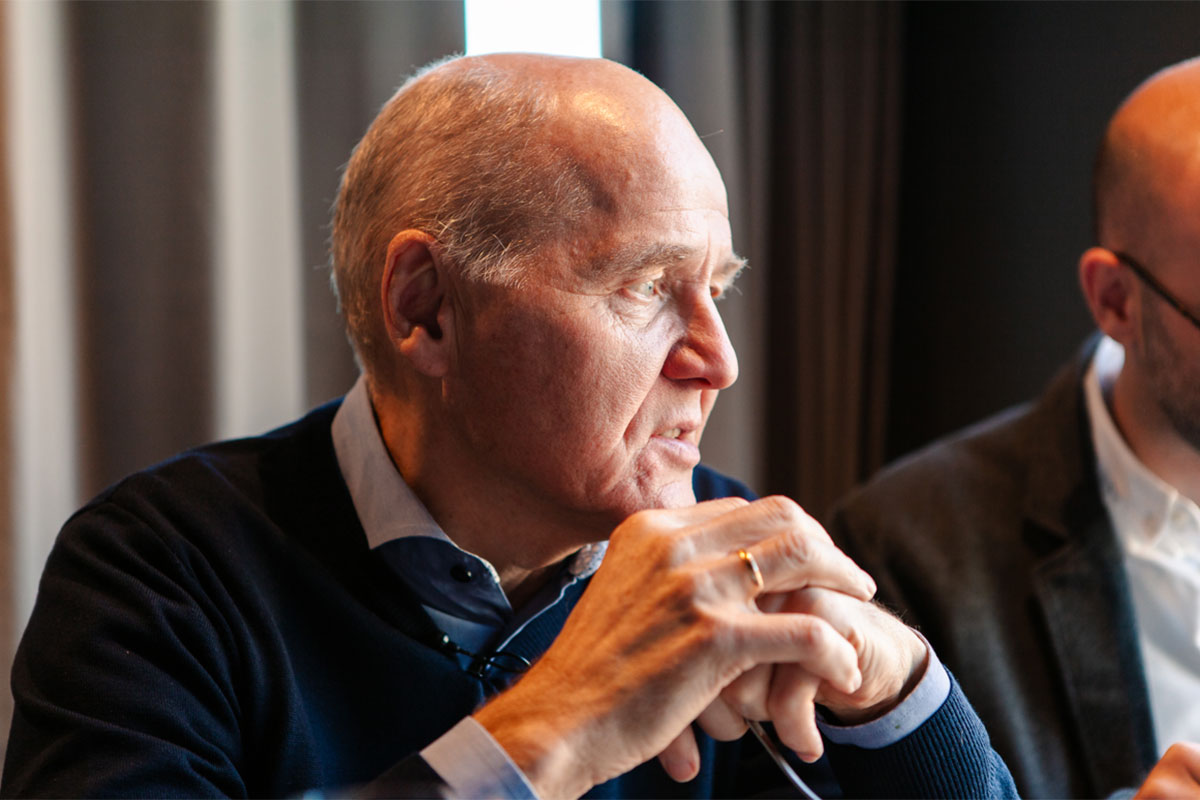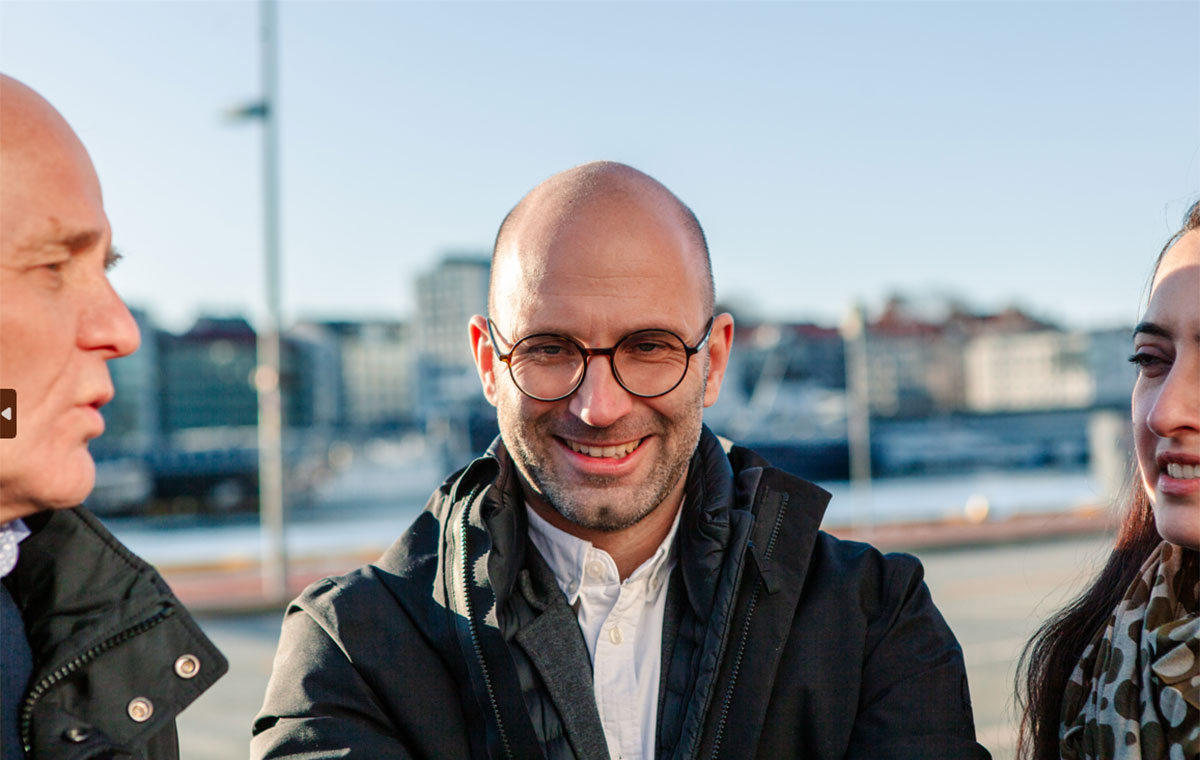
Green digital transformation: Four takeaways for success
Safeguard
Safeguarding planet, people and data in the digital world and beyond
Safeguard means that Telenor constantly raises the bar for the safety, security and privacy for our customers, partners and employees, as well as the health of our planet to drive positive, long-term change.
Technology is advancing fast and everyone is increasingly worried about the environment. Here are four key areas companies can focus on to address the sustainability challenges of the future.
Telenor and the Norwegian School of Economics (NHH) have collaborated closely for many years to increase knowledge-sharing across business and academia. During a visit to Bergen, Telenor CEO Sigve Brekke met with students and associate professors to discuss green digital transformation.
- When we talk about moving towards a more sustainable future, it's not just about a green transition; we also need to focus on making it a just transition for everyone, Sanjin Damjanovic, student, NHH, said.
NHH DIG is Norway’s leading centre on digital transformation
Sanjin Damjanovic studies finance at NHH and was part of the conversation with PhD student Sagar Gaikwad, associate professor in Strategy and Organisation, Björn Schmeisser and associate professor in International Strategy, Tina Saebi. Both students and professors have conducted research on Telenor.
- Last year, I worked on a study about creating sustainable business models, which means business models considering both economic, social, and environmental value creation. Telenor has many health-related business models and when they came up with a new business model providing digital health services in Bangladesh, it was great that the managers were told to think more like entrepreneurs. Unfortunately, not all companies promote that kind of culture, Saebi, Associate Professor, NHH, said.

Telenor has maintained a close partnership with NHH for many years, conducting research on business models, ecosystems, and organisational implications. DIG is Norway’s leading research centre on digital innovation for sustainable growth at NHH. Through independent research in close collaboration with partners from the business community, DIG aims to help Norwegian organisations improve their customer-oriented innovations, develop new business models, and adapt their organisations to a digital everyday life.
- Let’s call our CFO
One of the students at NHH DIG is Sanjin Damjanovic, who shared interesting insights on how finance and sustainability interact with each other.
- I used to only study finance, but now I’m also looking into how sustainability fits into finance. I think it’s important to do business that is ethical and responsible. What I have discovered is that finance and sustainability are not that different from each other as one might think initially, Damjanovic, said.

Sigve Brekke emphasises that sustainability is crucial and should be a commitment from top leadership, integrated into financial reporting. Brekke challenged CFO in Telenor, Tone Bachke, to explain, in just twenty seconds during a call, why both finance majors, and CFOs worldwide should prioritise sustainability.
- There are two main reasons to bring sustainability into finance. First, it facilitates value creation for stakeholders, and second, there is an overlap in methodologies between finance and sustainability reporting. The tools and frameworks we use for financial reporting can also ensure that we have the same level of quality and robustness in our sustainability reporting, Bache, CFO, Telenor, added.

Partnerships and initiatives drive change
The CEO, the Associate Professors and the students agree that a holistic and long-term approach to sustainability is important for driving sustainable change. Suppliers, peer groups and digitalisation are important elements. Balancing short-term financial pressures with a commitment to sustainability remains a critical challenge for companies.

- From my experience, it’s crucial to create group pressure to drive real change. I am part of peer groups where top leaders from different companies meet to discuss progress and commitments on sustainability. Such peer groups create a culture of accountability, Brekke said.
Strategic and long-term partnerships are important to both Telenor and NHH. NHH DIG has partners such as Sintef, Coop, Gjensidige, Virke and Abelia.
- There is a nice saying: If you want to go fast, go alone. If you want to far, go together, Schmeisser, Associate Professor, NHH, said.

Key takeaways:
Sustainability must be part of the business model: Sustainable business incorporate environmental and social value creation at the core of the business model.
Sustainability should be integrated into key organisational functions: Linking sustainability closely to key corporate functions, such as finance, is most natural as it involves similar methodologies and processes –ensuring a direct contribution to value creation for all stakeholders.
Group pressure can drive change: Large companies can influence suppliers to commit to science-based targets on energy efficiency and sustainability. CEO peer groups are effective to create a culture of accountability and to create commitment among top leadership.
Partnerships are essential to drive change: Meeting sustainability challenges alongside financial pressures demands new skills and capabilities, and no company can solve these challenges alone.